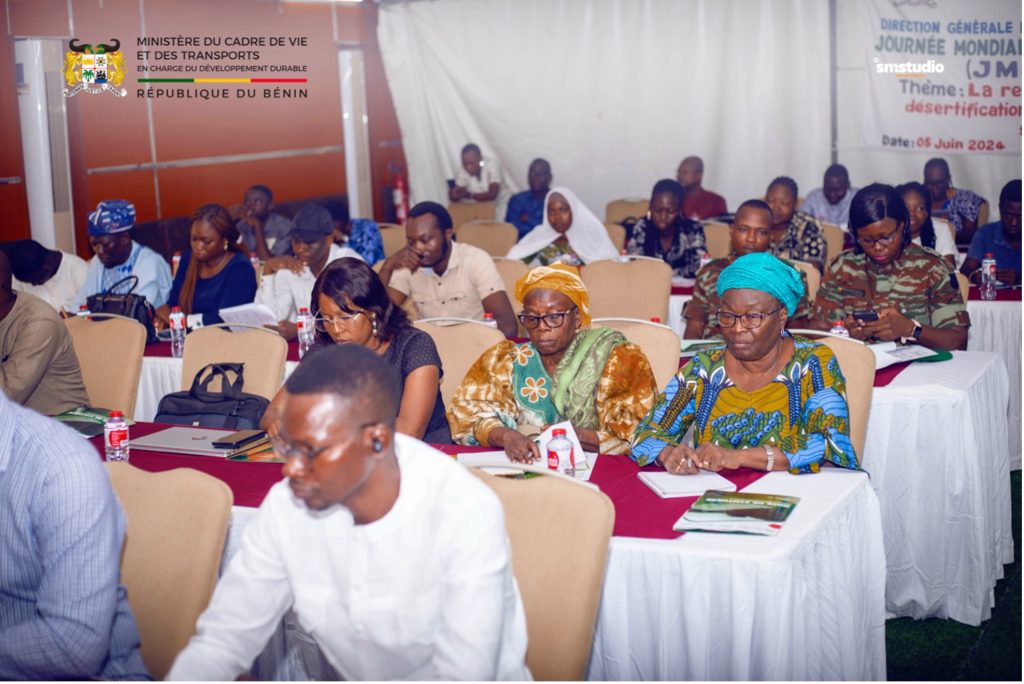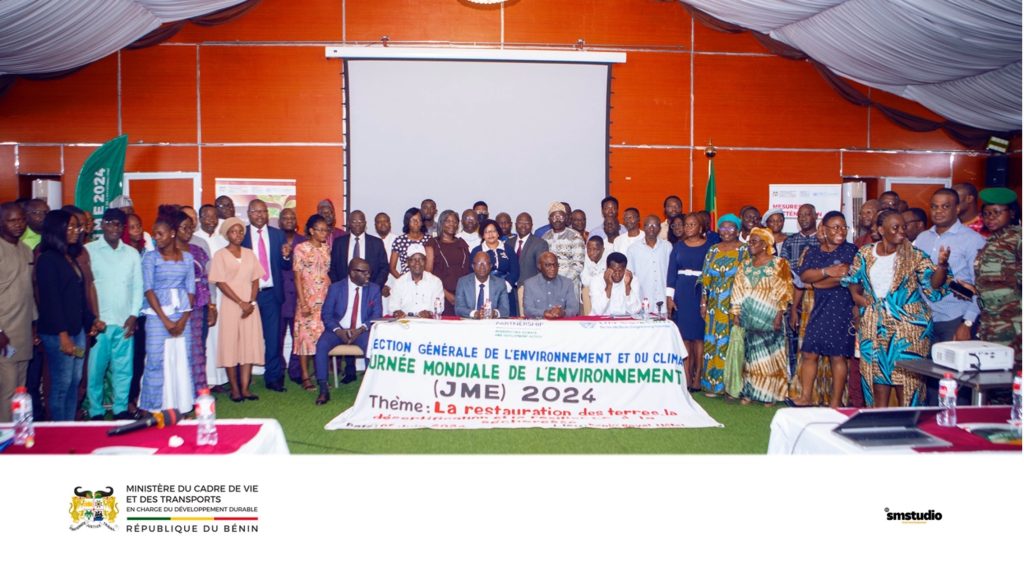The celebration of the 2024 edition of World Environment Day, on June 5, 2024, was an opportunity for Benin’s Ministry of Livelihood and Transport in charge of Sustainable Development, to mobilize the public for “land restoration, combating desertification and improving resilience to drought”.
In the face of increasing land degradation, Benin counted on awareness-raising to start remedying the visible and worrying damage caused by human activities and restore ecosystem health.
“This requires a firm commitment to restore degraded land, replant trees, protect natural flora, safeguard drylands and promote sustainable agricultural practices. Achieving this will require collective attention backed up by tangible, effective action”, said Professor Pépin Aina, Director General for the Environment and Climate.
The statement was made at an awareness-raising workshop organized as part of World Environment Day with the support of UN CC:Learn and the NDC Partnership as part of a project dedicated to communication and awareness-raising on climate change and Benin’s Nationally Determined Contribution (NDC). The workshop took place against a bleak backdrop: in Benin, some 43,393 km² of land, or 37.36% of the national territory, is recognized as degraded land (UNCCD Report, 2022). In terms of productivity, 43,322 km² of the national territory, or 37.31%, have low productivity. The annual World Environment Day is one of the main channels for raising awareness and taking action to protect the environment worldwide, including in Benin.

Participants at the workshop.
This year’s World Environment Day focused on a major challenge: the growing problems posed by land degradation, desertification, and drought through the theme of “Land restoration, combating desertification and drought resilience,” highlighting concrete actions to reverse the damage caused to the planet.”
“Today, we have the opportunity to make our voices heard, share our experiences and strengthen our commitment to the environment”. – Prof. Aina.
Following opening messages from the Director General for the Environment and Climate, the Vicar General of the Archdiocese of Cotonou, the Director of UNITAR’s Planet for Division and the Technical Advisor for Government Reforms, participants were offered in-depth presentations, debates, and recommendations.
Presentations explored, among other things, the impacts of desertification and drought on local communities, the need for sustainable land management practices, innovative approaches to land restoration, improving policies and frameworks to support land restoration initiatives, and improving waste and resource management. In addition, participants also discussed the role of governance in combating environmental degradation and the importance of public awareness and education in promoting environmental management.
The workshop organized in Cotonou underlined the urgency of concerted efforts to meet environmental challenges. By bringing together different stakeholders, encouraging discussion, sharing innovations, and formulating concrete recommendations, the event aimed to pave the way for sustainable land management and greater resilience to environmental stress.

